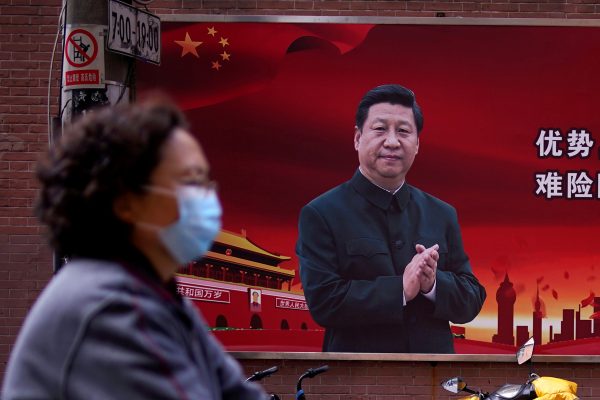How productive is it to question the handling — or mishandling — of China’s increasingly broad policy agenda? Given the ambition of China’s Belt and Road Initiative (BRI) — and China’s capacity to implement most of its agenda — these are matters the world should not ignore.
If the world wants China’s new strategic reach to be more compatible with international norms, the international community must seek adjustments in Chinese policies. Such adjustments need not be seen either as a defeat for China or as a victory for the West. Rather, they could mean identifying a more constructive articulation of Chinese policies for the rest of the world.
So, what are the prospects for successfully modifying China’s ambitions and behaviour?
The international community needs to reconsider its attitude towards China, just as China needs to reconsider some of its policies. For example, if China’s growing physical presence in the South China Sea does make the region more dangerous, what alternatives are available? Would a code of conduct for all countries with an interest in the South China Sea assist? If so, should China be pressured to push through a code of conduct?
China’s growing international influence is forcing the international community to consider whether it is a worthy international partner. To answer this question, we should ask whether China is able to maintain a balance between its own interests and capacities abroad. China’s involvement in international affairs, including in international regulatory systems, should reassure the international community that better outcomes are a possibility. But more principled behaviour by China will also be critical.
China has already demonstrated that it can exercise restraint in its use of power. Most importantly, it has conformed with international expectations with respect to nuclear non-proliferation. China has abided by international norms in relation to the UN since it became a member in 1972. It has complied with the requirements of the World Trade Organization (WTO) and related trade treaties. China has also conformed with international expectations in relation to transparency and accountability in Antarctica, through the Antarctic Treaty of 1970.
In terms of arms control, China has adhered to the Comprehensive Test Ban Treaty, the Nuclear Non-Proliferation Treaty via routine inspections by the International Atomic Energy Agency, the Biological Weapons Convention, the Chemical Weapons Convention, the World Intellectual Property Organization and the UN Trade and Development Agency and its Sustainable Development Goals. China joined the Asia Pacific Economic Cooperation arrangement in 1978.
China has also launched a number of its own multilateral initiatives such as the Shanghai Cooperation Organization, the BRI, the Boao Forum initiative and the Asian Infrastructure Investment Bank (AIIB). While not without their issues, these initiatives demonstrate a certain preparedness on China’s part to engage with its neighbours and to seek inclusive approaches to regional policy challenges.
China has cooperated for many years with several key regional programs in the Pacific and in South Asia, such as the South Asia Association for Regional Cooperation and the Bay of Bengal Multi-Sectoral Initiative for Technical Cooperation. China has been an active rather than passive participant in these bodies.
China needs more adroit diplomacy if it wishes to win more international support, respect and sympathy for its new strategic presence. China’s presence is often viewed as crudely opportunistic and narrowly focused on Chinese commercial interests. China must pay more attention to presenting these undertakings as strategically beneficial and sensitive to local circumstances.
There is no reason why China cannot become a worthy partner in the Pacific, although it won’t necessarily have the same approach as other big powers in the region. Geographically, China is not far from the Pacific Island states, many of which also have resident Chinese communities. China would be well advised to avoid taking sides politically in the Pacific in order to enhance its own strategic interests. China needs to keep its commercial activities in the Pacific separate from its broader international objectives.
The international community needs to become used to hearing a Chinese voice on important regional and international issues. China needs to articulate more sophisticated guidelines for its own international engagement. China might do well to develop effective cooperative arrangements with international partners it can identify with.
China needs to present a new open and honest model for international strategic partnerships if it expects greater recognition of its international status. To achieve this, China needs constantly to demonstrate that the new arrangements it promotes will be sensitive to local circumstances and will not leave cooperating regional parties worse off or economically disadvantaged. Deeper Chinese involvement in existing regional multilateral arrangements might help appease concerns about Beijing’s increasing international influence.
Trevor Wilson is formerly a researcher with the Coral Bell School of Asia Pacific Affairs, The Australian National University.

